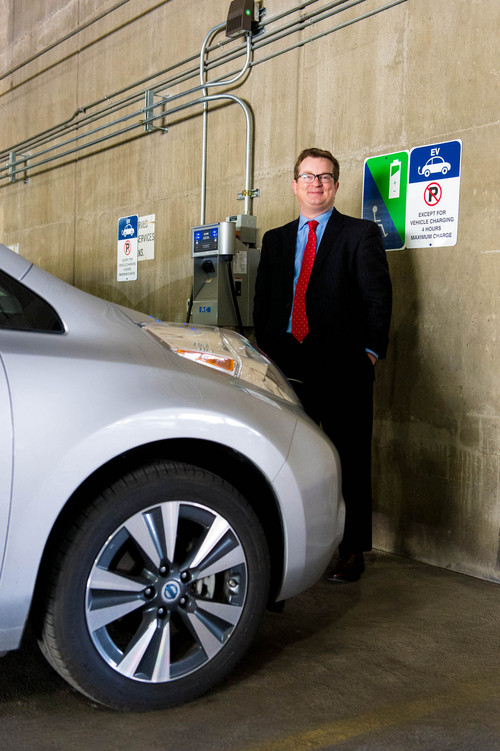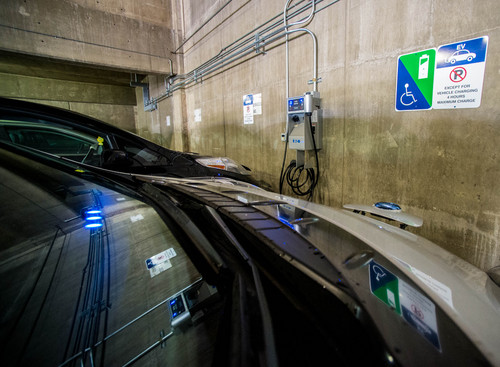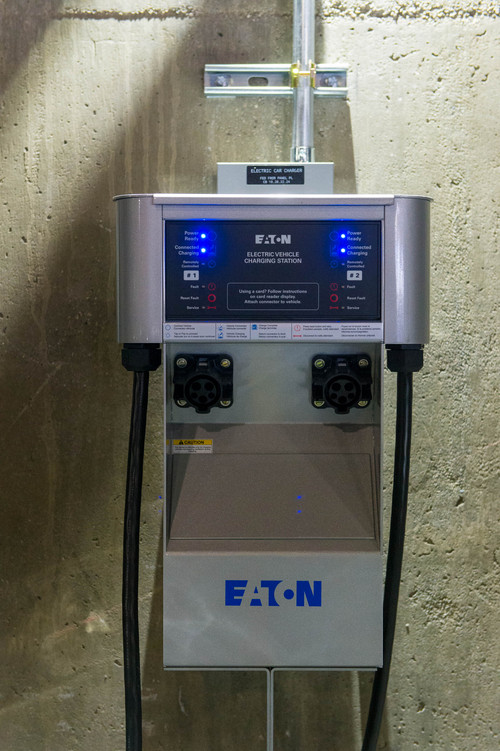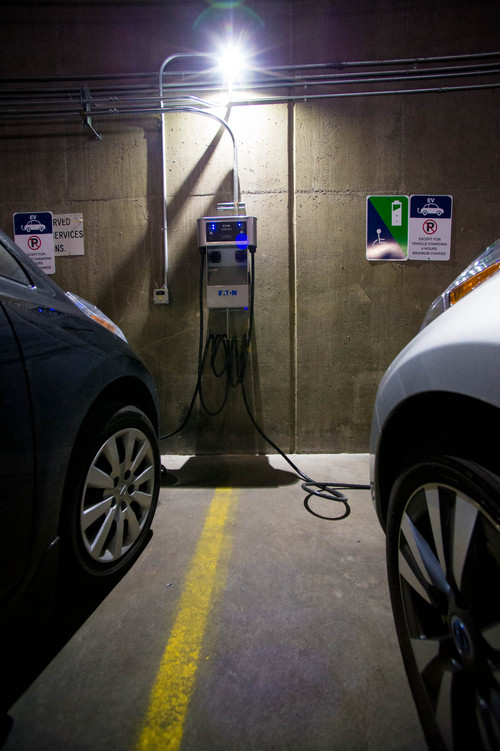This is an archived article that was published on sltrib.com in 2014, and information in the article may be outdated. It is provided only for personal research purposes and may not be reprinted.
A proposed tweak in state law could go a long way toward making electric vehicles, which typically travel no more than 80 miles between charges, a more practical option for Utah drivers.
Under current law, Utahns who drive electric vehicles (EV) long distances away from home depend on the good will of employers and retailers who install charging equipment for them to use for free.
This is because the resale of electricity requires regulation as a public utility, so, not surprisingly, the private sector has done little to build a charging infrastructure.
HB19 would exempt businesses that provide vehicle battery charging from regulation as a public utility or electric corporation. With expansion of quick-charge facilities, EV owners like Justin Miller would experience less "range anxiety" and others would be encouraged to drive the efficient, low-emission vehicles, says the bill's sponsor, Rep. Patrice Arent, D-Millcreek.
Miller, a deputy mayor for Salt Lake County, commutes from his Kaysville home, a distance of about 50 miles round trip. A few months ago he traded his gasoline-powered Nissan Altima for an all-electric Leaf, but he had to park his new car at the Nissan dealer for recharging while at work in Salt Lake City.
Despite that inconvenience, Miller said, driving such a vehicle cuts both his commuting costs and his contribution to the Wasatch Front's smog.
"It was a moral issue for me. If we can take small steps, this is one way I can do it personally," Miller said.
His small step saves him enough in fuel costs to cover his car payment.
Recently the county installed charging equipment at the government complex for employees, so Miller can now fuel up at the office. Without a recharge as he works, he risks running out of juice on the way home and can make minimal side trips. This is because Utah has so few public charging stations — a grand total of 41.
More than one-third of these stations are at Walgreens drug stores, which invite customers to plug in while they shop.
If HB19 becomes law, such businesses can recoup the cost of installing this equipment by charging a fee, Arent said.
The bill is awaiting action on the Senate floor after sailing through two committees and the House without a single nay vote.
"It's an important signal to send that Utah is open for business for electric vehicles," Kevin Emerson, of Utah Clean Energy, told a Senate panel last week. "Making it more convenient is going to help more of these vehicles get on the road. It's a chicken-and-the-egg thing."
Currently, only 482 electric vehicles are registered in Utah, according to the Division of Motor Vehicles, although there are another 20,578 "hybrids" registered. DMV spokesman Charlie Roberts estimated 90 percent of the hybrid vehicles are powered by both electricity and gasoline.
State emissions inventories indicate motor vehicles account for 58 percent of the Wasatch Front's air pollution, putting out five times the emissions of industry. Although activists contend industry's share is higher, there is no doubt that reducing vehicle emissions plays a key role in clearing the air, particularly when vehicle travel is expected to double along the Wasatch Front over the next 30 years, according to a recent report by the Southwest Energy Efficiency Project.
When accounting for "upstream" emissions associated with generating the power, the report concluded that EVs will help reduce air pollution on the Front even after implementation of Tier III gasoline standards, which will cut sulfur content.
The Utah Public Service Commission has already taken steps to remove vehicle charging from utility regulations, but HB19 would remove any doubt for the entire state.
The University of Utah intends to install 240-volt equipment, which can fully charge an EV in three hours, in a few places around campus once the law changes, according to U. sustainability director Myron Willson. The cost of installation has been an obstacle in the past, as much as U. officials would like to accommodate EV owners.
The 240-volt chargers cost up to $3,000 a unit, but installation costs can run up to $5,000, depending on the location, Willson said. U. officials hope to recoup such costs without gouging visitors.
Quick-charging DC units cost far more and the U. has no plans to install those, although its new parking lots will be wired with plenty of 110-volt outlets for those who pack their own plugs.
Electric vehicles and the law
Legislation awaiting final action on the Senate floor aims to reward those who drive electric vehicles with tax credits and to promote charging infrastructure.
HB19 removes electricity resale from utility regulation as long as it's used for charging vehicles.
HB74 reauthorizes the Energy Efficient Vehicle Tax Credit, expanding the credit for electric vehicle purchases and leases to $2,500 and for plug-in hybrids to $1,250.









